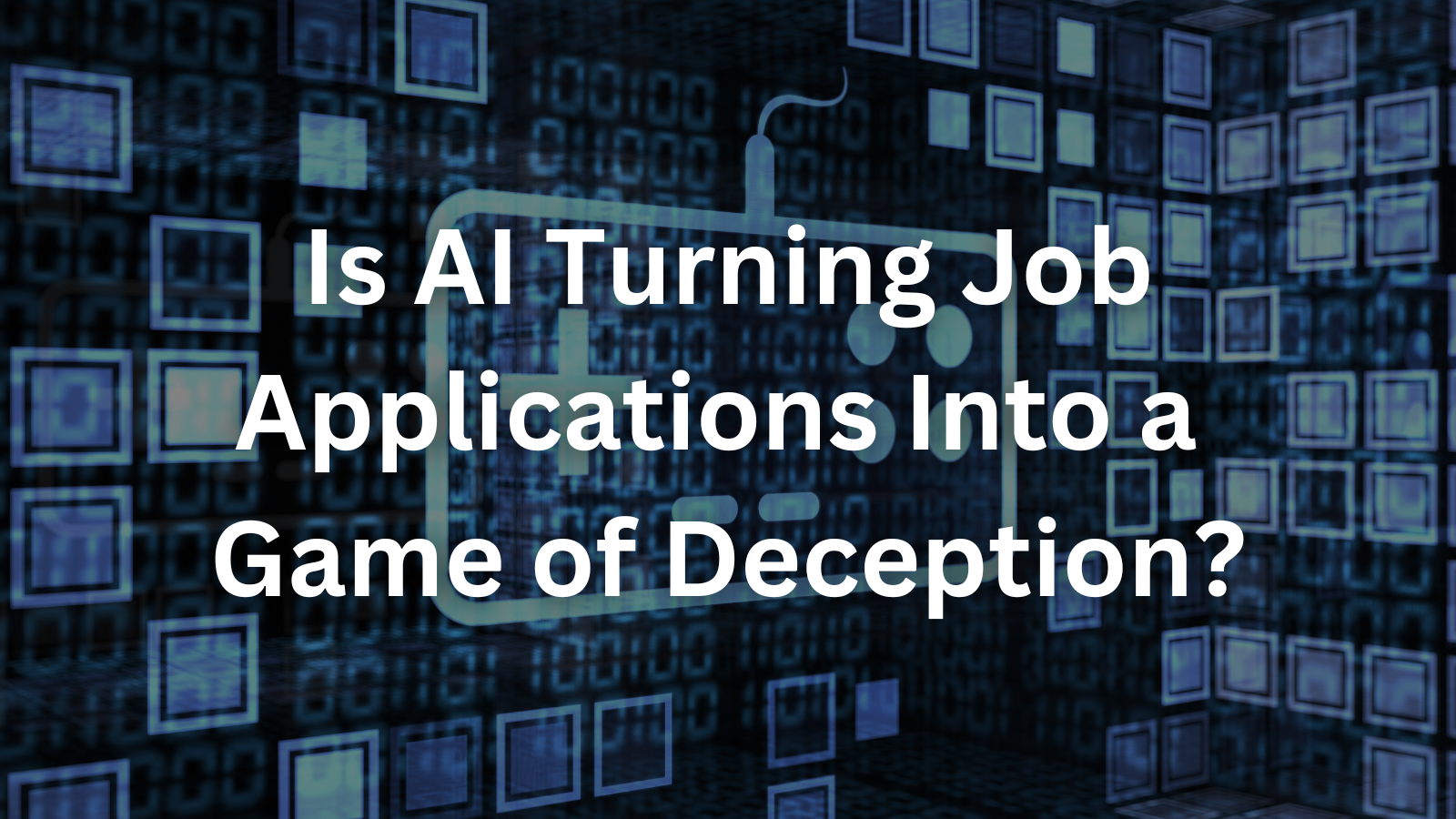Is AI Turning Job Applications Into a Game of Deception?

The AI job application arms race is compromising hiring
Employers are drowning in AI-crafted resumes and cover letters packed with phrases like "leveraging synergies" and "aligning with organizational goals." Meanwhile, candidates feel pressured to use AI just to stay competitive. The result? A hiring process where no one knows what’s real anymore. Let’s dive in.
🤖 The AI Filter Bubble Problem
- 50% of UK job applicants now use AI tools like ChatGPT for applications (BBC, 2024).
- Employers like James Robinson report AI-generated clichés flooding applications, making it harder to spot genuine talent.
- Students are torn: Some avoid AI over plagiarism fears, while others use it to meet employer expectations.
- This creates an "endless AI competition"—companies deploy AI filters, candidates counter with better AI tools, and the cycle repeats.
✅ Reimagining the Interview Process
To break the cycle, companies must rethink how they evaluate candidates:
- Practical Assessments: Replace scripted questions with real-world tasks (e.g., coding challenges, mock client scenarios).
- Behavioral Interviews: Focus on specific past experiences ("Tell me about a time you failed...") that AI can’t fabricate.
- Transparency: Ask candidates to disclose AI use and explain their personal contributions.
- AI Detection Tools: Platforms like HireVue now flag AI-generated content, but skepticism remains about accuracy.

🚧 The Roadblocks to Change
- Ethical Gray Areas: As Cardiff Met’s Megan Cooper notes, "AI can’t replace human judgment." But where’s the line between "tool" and "cheat"?
- Detection Isn’t Foolproof: Tools like GPTZero have high error rates, risking false accusations against honest candidates.
- Speed vs. Authenticity: Employers crave efficiency, but deeper evaluations take time. As student Timothy Mitchell warns, "Those who avoid AI are cheating themselves."
💡 Final Thoughts: Adapt or Get Played
This isn’t just an HR problem—it’s a systemic shift. Companies that cling to outdated hiring methods will keep getting AI-polished resumes instead of skilled employees. Success requires:
- ✅ Prioritizing human-centric evaluations (e.g., portfolios, role-playing).
- ✅ Investing in upskilling managers to spot AI-generated fluff.
- ✅ Building a culture where "authenticity beats automation."
As AI evolves, so must we. The question is: Will employers lead the change, or keep playing whack-a-mole with chatbots? What do you think? Let's discuss on X(Former Twitter)
Sources: BBC. A growing use of artificial intelligence in job applications risks employers hiring candidates who cannot do the work, 2024. URL: https://www.bbc.com/news/articles/cx29z8lyx71o



